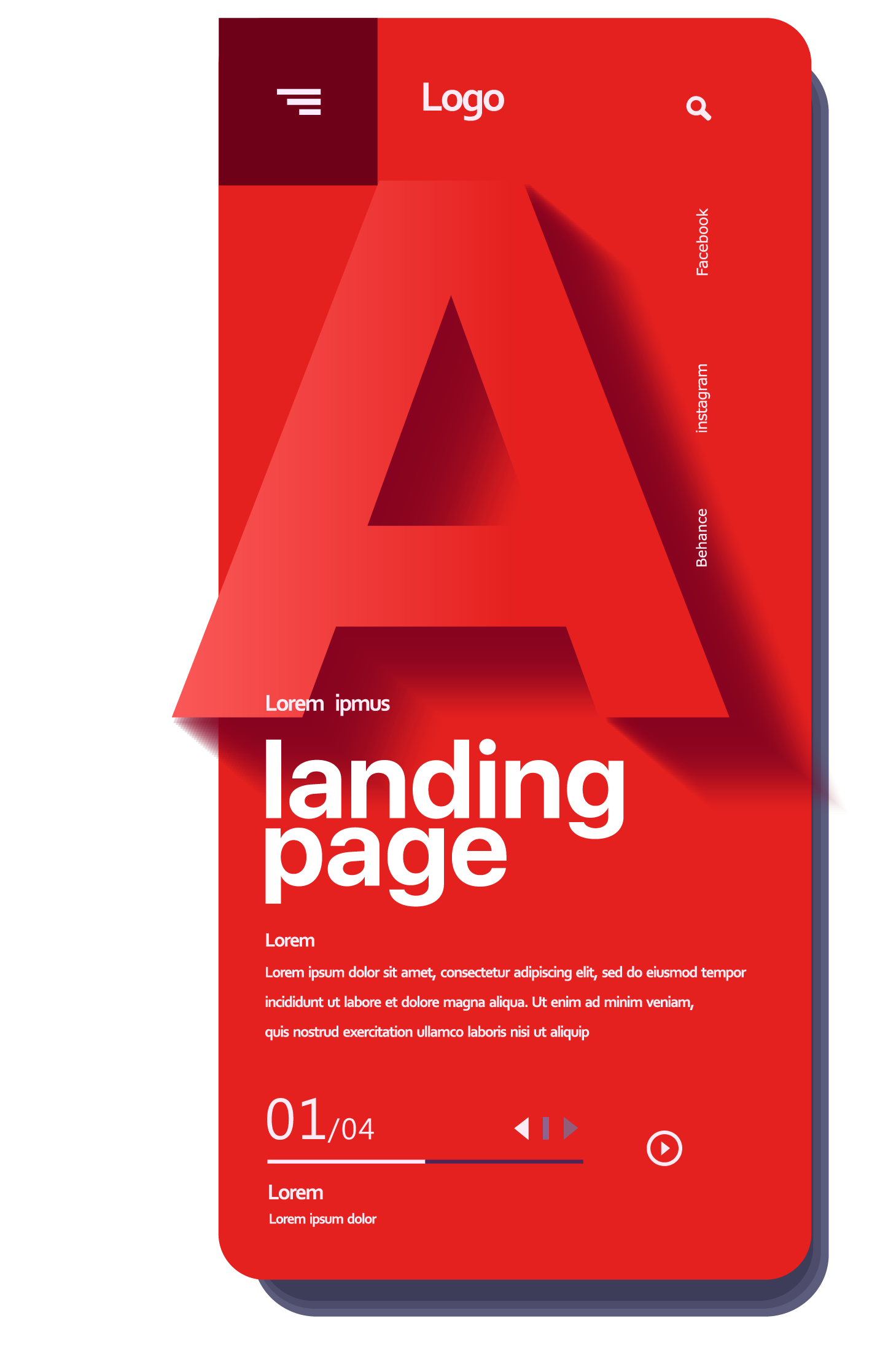Why Your Business Needs a Website (Not Just Social Media)
Running a business in Southwest Virginia without a professional website is like trying to compete in NASCAR with a horse and buggy. You might get some attention for being different, but you won’t win the race. While social media platforms have their place in your marketing toolkit, they should never be your only digital presence. Here’s why building your business solely on social media is a losing strategy – and what you should do instead.
The Social Media Mirage: Why Platforms Aren’t Enough
Social media feels easy. You can set up a Facebook page in minutes, post some photos on Instagram, and start connecting with customers right away. For many Southwest Virginia businesses – from Bristol barbecue joints to Wise County manufacturers – social media seems like the perfect solution for getting online quickly and cheaply.

But here’s the harsh reality: social media platforms are rented land. You don’t own your Facebook page, Instagram account, or TikTok profile. These platforms control everything about your digital presence, from how many people see your posts to whether your account exists tomorrow.
Algorithm Changes Can Kill Your Reach Overnight
Remember when Facebook promised that posting regularly would help you reach all your followers? Those days are long gone. Facebook’s algorithm now shows your posts to only 2-5% of your followers unless you pay for promotion. Instagram has followed suit, and other platforms are heading in the same direction.
This means the 1,000 followers you worked hard to build might only see 20-50 of your posts. That’s not a marketing strategy – that’s digital quicksand.
Platform Dependency Creates Dangerous Vulnerabilities
What happens when Instagram goes down for a day? Your entire marketing operation stops. What if Facebook decides your industry violates their terms of service? Your business disappears from the platform overnight. These aren’t hypothetical scenarios – they happen regularly.

Regional businesses in Southwest Virginia face unique challenges. When the Appalachian region experienced internet outages during recent storms, businesses with only social media presence completely lost their ability to communicate with customers. Those with websites could still be found through search engines once connectivity returned.
Why Websites Give You the Competitive Edge
A website is digital real estate you actually own. It’s your business headquarters on the internet, working for you 24 hours a day, seven days a week. Unlike social media platforms, your website follows your rules, displays your content exactly as you want, and can’t be taken away by algorithm changes or platform policies.
Search Engine Visibility That Social Media Can’t Match
When someone in Abingdon searches for “custom manufacturing near me” or “best restaurant in Big Stone Gap,” Google doesn’t show them Facebook posts. Google shows websites. Businesses without professional websites miss out on thousands of potential customers who are actively searching for their services.
Local SEO is particularly powerful for Southwest Virginia businesses. When you optimize your website for local search terms, you can capture customers not just from your immediate area, but from the entire tri-state region. A manufacturing company in Lebanon can attract clients from Tennessee and Kentucky. A restaurant in Norton can draw tourists traveling the Crooked Road heritage trail.
Professional Credibility That Builds Trust
A professional website signals that you’re a legitimate, established business. When potential customers are choosing between a company with a sleek, informative website and one with only a basic Facebook page, which do you think they’ll trust with their money?
This credibility factor is especially important for B2B companies in Southwest Virginia’s manufacturing and distribution sectors. Decision-makers expect to find detailed information about your capabilities, certifications, and track record. A website lets you showcase case studies, technical specifications, and client testimonials in a professional format that social media simply can’t match.
Complete Control Over Your Message and Brand
Your website is your digital storefront. You control every aspect of the customer experience, from the colors and fonts to the information displayed and the path customers take through your site. You can create dedicated landing pages for different services, build email lists, and guide visitors toward specific actions.
Social media platforms force you to work within their design limitations and constantly compete for attention against cat videos and political arguments. Your important business announcement gets lost in the noise of a cluttered feed.
The Data Advantage: Why Analytics Matter
Websites provide detailed analytics about your customers that social media platforms don’t offer. You can see which pages visitors spend the most time on, where they’re located, how they found you, and what convinced them to contact you. This data helps you make informed decisions about your marketing and business development.
Social media analytics are limited and often focused on vanity metrics like likes and shares rather than business outcomes like leads and sales. Website analytics tell you what’s actually driving revenue.
Lead Generation and Customer Nurturing
Your website can capture leads 24/7 through contact forms, newsletter signups, and downloadable resources. You own these leads and can communicate with them directly through email marketing. Social media platforms limit your ability to export follower information and often restrict how you can communicate with your audience.
For Southwest Virginia businesses, this lead capture capability is crucial. Tourist season brings visitors who might need your services months later. A website with lead capture keeps those potential customers connected to your business long after they’ve left the region.

The Integration Strategy: Website as Your Digital Hub
Smart businesses don’t choose between websites and social media – they use social media to drive traffic to their websites. Your social posts should tease interesting content and direct followers to your website for the full story. This strategy lets you use social media’s engagement features while building traffic to the digital property you actually own.
Think of social media as your business development team and your website as your sales closer. Social media introduces people to your brand and builds relationships. Your website provides detailed information and converts visitors into customers.
Content Marketing That Builds Authority
A blog on your website positions you as an expert in your industry. Regular, helpful content improves your search engine rankings and gives you material to share across social media platforms. A blog post about manufacturing innovations in Southwest Virginia can be turned into multiple social media posts, email newsletters, and speaking topic ideas.
This approach works particularly well for the diverse industries in our region. A distribution company can blog about logistics challenges in Appalachian terrain. A restaurant can share stories about local suppliers and seasonal ingredients. Each post builds your reputation and improves your website’s search rankings.
Making the Investment: ROI of Professional Websites
A professional website requires upfront investment, but the return far exceeds the cost. Unlike social media advertising, which stops working the moment you stop paying, website improvements continue generating value for years.
Consider the math: Social media ads might cost $500-2000 per month with temporary results. A professional website costs $3000-10000 upfront but works for years with minimal ongoing costs. The website pays for itself by capturing leads that would otherwise be lost to competitors with better web presences.
Local Success Stories
Manufacturing companies in the Mount Rogers region have used professional websites to attract clients from across the Southeast. Restaurants along the I-81 corridor have increased tourist traffic by ranking high in local search results. Service businesses throughout Southwest Virginia have reduced their dependence on expensive advertising by generating steady leads through their websites.
These success stories share common elements: professional design, local SEO optimization, clear calls to action, and regular content updates. None of these businesses would have achieved the same results had they used only social media.
Taking Action: Your Next Steps
The digital landscape isn’t waiting for Southwest Virginia businesses to catch up. Every day you operate without a professional website is a day your competitors gain ground. Customers are searching for services like yours right now, and if they can’t find your website, they’ll find someone else’s.
Start by auditing your current online presence. Do a Google search for your services in your area. Where does your business appear? If you only show up on social media, you’re missing the majority of potential customers who expect to find professional websites.
Next, consider what your ideal customer needs to know before choosing your business. This information should live on your website, not buried in social media posts that only a few people will see.
The businesses thriving in Southwest Virginia’s competitive marketplace aren’t the ones avoiding digital transformation – they’re the ones embracing it strategically. A professional website isn’t a luxury or a “nice to have” feature. It’s essential infrastructure for modern business success.
Your competitors are already online. Your customers are already searching. The only question is whether you’ll meet them there or let someone else capture the business that should be yours.
The choice is clear: invest in a professional website or watch your competitors win the customers you should be serving. In today’s digital economy, there’s no middle ground.